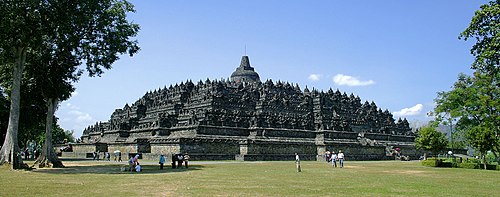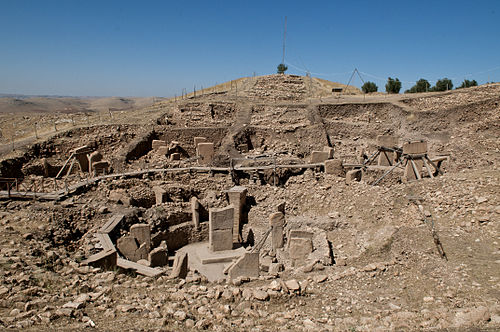Shrinenoun
A holy or sacred place dedicated to a specific deity, ancestor, hero, martyr, saint, or similar figure of awe and respect, at which said figure is venerated or worshipped.
Shrinenoun
A case, box, or receptacle, especially one in which are deposited sacred relics, as the bones of a saint.
Shrinenoun
(figuratively) A place or object hallowed from its history or associations.
Shrineverb
To enshrine; to place reverently, as if in a shrine.
Shrinenoun
A case, box, or receptacle, especially one in which are deposited sacred relics, as the bones of a saint.
Shrinenoun
Any sacred place, as an altar, tromb, or the like.
Shrinenoun
A place or object hallowed from its history or associations; as, a shrine of art.
Shrinenoun
Short for Ancient Arabic Order of Nobles of the Mystic Shrine, a secret fraternal organization professedly originated by one Kalif Alu, a son-in-law of Mohammed, at Mecca, in the year of the Hegira 25 (about 646 a. d.) In the modern order, established in the United States in 1872, only Knights Templars or thirty-second degree Masons are eligible for admission, though the order itself is not Masonic. A member of the order is popularly called a Shriner, and the order itself is sometimes called the Shriners.
Shrineverb
To enshrine; to place reverently, as in a shrine.
Shrinenoun
a place of worship hallowed by association with some sacred thing or person
Shrineverb
enclose in a shrine;
Shrine
A shrine (Latin: scrinium Old French: escrin ) is a sacred or holy site dedicated to a specific deity, ancestor, hero, martyr, saint, daemon, or similar figure of respect, wherein they are venerated or worshipped. Shrines often contain idols, relics, or other such objects associated with the figure being venerated.
Templenoun
A house of worship, especially
Templenoun
A house of worship dedicated to a polytheistic faith.
Templenoun
(Judaism) A synagogue, especially a non-Orthodox synagogue.
Templenoun
(Mormonism) A church closed to non-Mormons and necessary for particular rituals.
Templenoun
A meeting house of the Oddfellows fraternity; its members.
Templenoun
(figurative) Any place regarded as holding a religious presence.
Templenoun
(figurative) Anything regarded as important or minutely cared for.
Templenoun
(figurative) A gesture wherein the forefingers are outstretched and touch pad to pad while the other fingers are clasped together.
Templenoun
(anatomy) The slightly flatter region, on either side of the head, back of the eye and forehead, above the zygomatic arch and in front of the ear.
Templenoun
(ophthalmology) Either of the sidepieces on a set of spectacles, extending backwards from the hinge toward the ears and, usually, turning down around them.
Templenoun
(weaving) A contrivance used in a loom for keeping the web stretched transversely.
Templeverb
(transitive) To build a temple for; to appropriate a temple to; to temple a god
Templenoun
A contrivence used in a loom for keeping the web stretched transversely.
Templenoun
The space, on either side of the head, back of the eye and forehead, above the zygomatic arch and in front of the ear.
Templenoun
One of the side bars of a pair of spectacles, jointed to the bows, and passing one on either side of the head to hold the spectacles in place.
Templenoun
A place or edifice dedicated to the worship of some deity; as, the temple of Jupiter at Athens, or of Juggernaut in India.
Templenoun
The edifice erected at Jerusalem for the worship of Jehovah.
Templenoun
Hence, among Christians, an edifice erected as a place of public worship; a church.
Templenoun
Fig.: Any place in which the divine presence specially resides.
Templenoun
A building dedicated to the administration of ordinances.
Templenoun
A local organization of Odd Fellows.
Templeverb
To build a temple for; to appropriate a temple to; as, to temple a god.
Templenoun
place of worship consisting of an edifice for the worship of a deity
Templenoun
the flat area on either side of the forehead;
Templenoun
an edifice devoted to special or exalted purposes
Templenoun
(Judaism) the place of worship for a Jewish congregation
Templenoun
a building devoted to the worship of a god or gods.
Templenoun
either of two successive religious buildings of the Jews in Jerusalem. The first (957–586 BC) was built by Solomon and destroyed by Nebuchadnezzar; it contained the Ark of the Covenant. The second (515 BC–AD 70) was enlarged by Herod the Great from 20 BC and destroyed by the Romans during a Jewish revolt; all that remains is the Wailing Wall.
Templenoun
a synagogue.
Templenoun
a place of Christian public worship, especially a Protestant church in France.
Templenoun
a thing regarded as holy or likened to a temple, especially a person's body
Templenoun
a place devoted to or seen as the centre of a particular activity or interest
Templenoun
a group of buildings in Fleet Street, London, which stand on land formerly occupied by the headquarters of the Knights Templar. Located there are the Inner and Outer Temple, two of the Inns of Court.
Templenoun
the flat part of either side of the head between the forehead and the ear
Templenoun
a device in a loom for keeping the cloth stretched.
Temple
A temple (from the Latin templum) is a building reserved for spiritual rituals and activities such as prayer and sacrifice. Religions which erect temples include Hinduism, Buddhism, Sikhism, Jainism, Christianity (whose temples are typically called churches), Islam (whose temples are called mosques), Judaism (whose temples are called synagogues), and ancient religions such as the Ancient Egyptian religion.










































